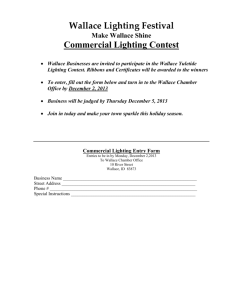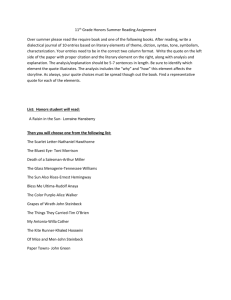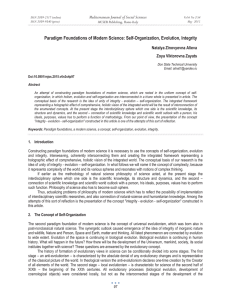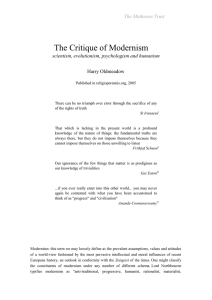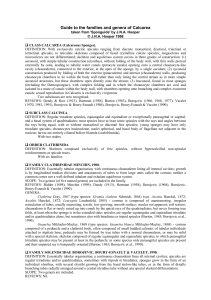Ascent of Evolutionism
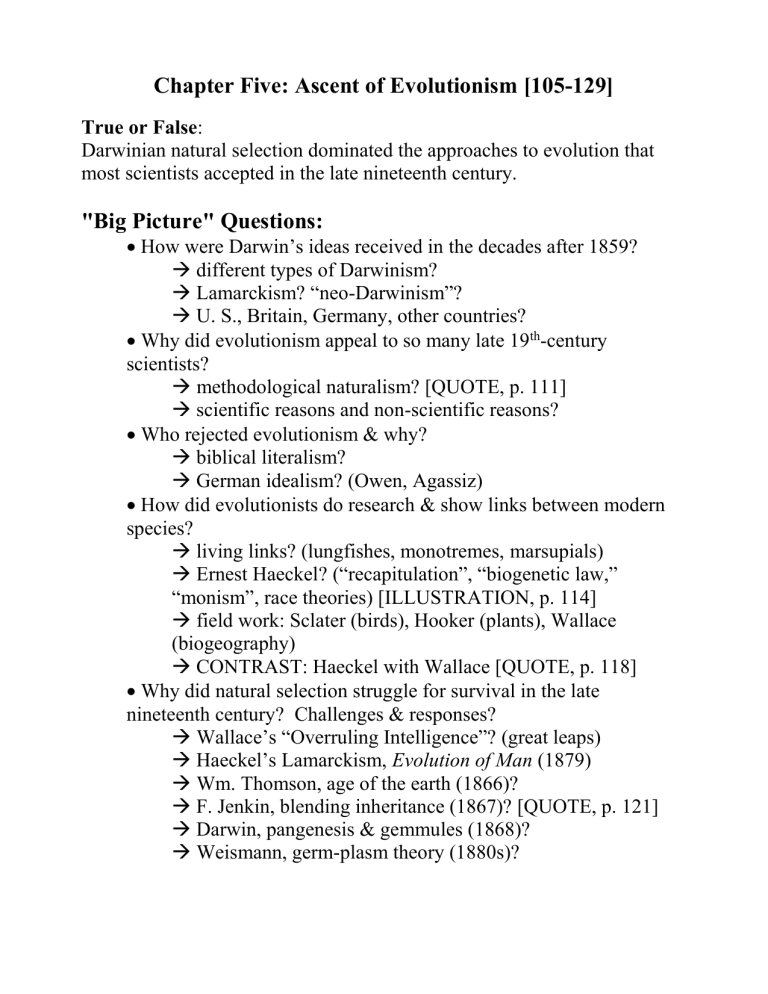
Chapter Five: Ascent of Evolutionism [105-129]
True or False :
Darwinian natural selection dominated the approaches to evolution that most scientists accepted in the late nineteenth century.
"Big Picture" Questions:
How were Darwin’s ideas received in the decades after 1859?
different types of Darwinism?
Lamarckism? “neo-Darwinism”?
U. S., Britain, Germany, other countries?
Why did evolutionism appeal to so many late 19 th -century scientists?
methodological naturalism? [QUOTE, p. 111]
scientific reasons and non-scientific reasons?
Who rejected evolutionism & why?
biblical literalism?
German idealism? (Owen, Agassiz)
How did evolutionists do research & show links between modern species?
living links? (lungfishes, monotremes, marsupials)
Ernest Haeckel? (“recapitulation”, “biogenetic law,”
“monism”, race theories) [ILLUSTRATION, p. 114]
field work: Sclater (birds), Hooker (plants), Wallace
(biogeography)
CONTRAST: Haeckel with Wallace [QUOTE, p. 118]
Why did natural selection struggle for survival in the late nineteenth century? Challenges & responses?
Wallace’s “Overruling Intelligence”? (great leaps)
Haeckel’s Lamarckism, Evolution of Man (1879)
Wm. Thomson, age of the earth (1866)?
F. Jenkin, blending inheritance (1867)? [QUOTE, p. 121]
Darwin, pangenesis & gemmules (1868)?
Weismann, germ-plasm theory (1880s)?
What major factors pushed evolutionists in non-Darwinian directions?
1) age of the earth
2) inheritance mechanisms
3) gaps/discontinuities in fossil record (saltationist)
4) Cambrian explosion of life
5) belief in progress & purposeful progression
What were the four major non-Darwinian approaches to evolution that attracted the most followers?
1) theistic evolution (Gray, Argyll, Mivart)
2) neo-Lamarckism (Hyatt, Cope, Osborn)
3) orthogenesis (Eimer)
4) saltation or mutation theory (Huxley, de Vries)
[QUOTES, Dennert (1903), Kellogg (1907)]
How could the evolution of life be an established fact among the vast majority of scientists by 1900, but the scientific debate continued as to how and why evolution occurred? Explain.




